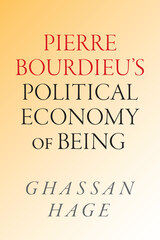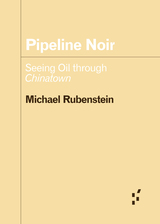

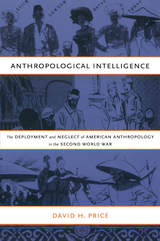
Anthropological Intelligence is based on interviews with anthropologists as well as extensive archival research involving many Freedom of Information Act requests. Price looks at the role played by the two primary U.S. anthropological organizations, the American Anthropological Association and the Society for Applied Anthropology (which was formed in 1941), in facilitating the application of anthropological methods to the problems of war. He chronicles specific projects undertaken on behalf of government agencies, including an analysis of the social effects of postwar migration, the design and implementation of OSS counterinsurgency campaigns, and the study of Japanese social structures to help tailor American propaganda efforts. Price discusses anthropologists’ work in internment camps, their collection of intelligence in Central and South America for the FBI’s Special Intelligence Service, and their help forming foreign language programs to assist soldiers and intelligence agents. Evaluating the ethical implications of anthropological contributions to World War II, Price suggests that by the time the Cold War began, the profession had set a dangerous precedent regarding what it would be willing to do on behalf of the U.S. government.

This book breaks new ground in the history of anthropology, opening up an explicit examination of anthropology in the Cold War era. With historical distance, Cold War anthropology has begun to emerge as a distinct field within the discipline. This book brings a number of different approaches to bear on the questions raised by anthropology's Cold War history.
The contributors show how anthropologists became both tools and victims of the Cold War state during the rise of the United States in the post-War period. Examining the intersection between science and power, this book is a compelling read for anthropologists, historians, sociologists, and anyone interested in the way in which colonial and neo-colonial knowledge is produced and constructed.
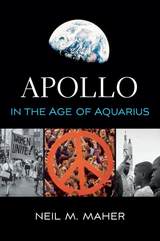
Winner of the Eugene M. Emme Astronautical Literature Award
A Bloomberg View Must-Read Book of the Year
A Choice Outstanding Academic Title of the Year
“A substance-rich, original on every page exploration of how the space program interacted with the environmental movement, and also with the peace and ‘Whole Earth’ movements of the 1960s.”
—Tyler Cowen, Marginal Revolution
The summer of 1969 saw astronauts land on the moon for the first time and hippie hordes descend on Woodstock. This lively and original account of the space race makes the case that the conjunction of these two era-defining events was not entirely coincidental.
With its lavishly funded mandate to put a man on the moon, the Apollo mission promised to reinvigorate a country that had lost its way. But a new breed of activists denounced it as a colossal waste of resources needed to solve pressing problems at home. Neil Maher reveals that there were actually unexpected synergies between the space program and the budding environmental, feminist and civil rights movements as photos from space galvanized environmentalists, women challenged the astronauts’ boys club and NASA’s engineers helped tackle inner city housing problems. Against a backdrop of Saturn V moonshots and Neil Armstrong’s giant leap for mankind, Apollo in the Age of Aquarius brings the cultural politics of the space race back down to planet Earth.
“As a child in the 1960s, I was aware of both NASA’s achievements and social unrest, but unaware of the clashes between those two historical currents. Maher [captures] the maelstrom of the 1960s and 1970s as it collided with NASA’s program for human spaceflight.”
—George Zamka, Colonel USMC (Ret.) and former NASA astronaut
“NASA and Woodstock may now seem polarized, but this illuminating, original chronicle…traces multiple crosscurrents between them.”
—Nature
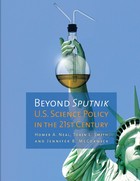
Science and technology are responsible for almost every advance in our modern quality of life. Yet science isn't just about laboratories, telescopes and particle accelerators. Public policy exerts a huge impact on how the scientific community conducts its work. Beyond Sputnik is a comprehensive survey of the field for use as an introductory textbook in courses and a reference guide for legislators, scientists, journalists, and advocates seeking to understand the science policy-making process. Detailed case studies---on topics from cloning and stem cell research to homeland security and science education---offer readers the opportunity to study real instances of policymaking at work. Authors and experts Homer A. Neal, Tobin L. Smith, and Jennifer B. McCormick propose practical ways to implement sound public policy in science and technology and highlight how these policies will guide the results of scientific discovery for years to come.
Homer A. Neal is the Samuel A. Goudsmit Distinguished University Professor of Physics, Interim President Emeritus, and Vice President for Research Emeritus at the University of Michigan, and is a former member of the U.S. National Science Board.
Tobin L. Smith is Associate Vice President for Federal Relations at the Association of American Universities. He was formerly Assistant Director of the University of Michigan and MIT Washington, DC, offices.
Jennifer B. McCormick is an Assistant Professor of Biomedical Ethics in the Division of General Internal Medicine at the Mayo College of Medicine in Rochester, Minnesota, and is the Associate Director of the Research Ethics Resource, part of the Mayo Clinic's NIH Clinical Translational Science Award research programs.
GO BEYOND SPUTNIK ONLINE--Visit www.science-policy.net for the latest news, teaching resources, learning guides, and internship opportunities in the 21st-Century field of science policy.
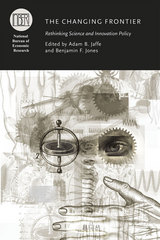
In The Changing Frontier, Adam B. Jaffe and Benjamin Jones bring together a group of prominent scholars to consider the changes in science and innovation in the ensuing decades. The contributors take on such topics as changes in the organization of scientific research, the geography of innovation, modes of entrepreneurship, and the structure of research institutions and linkages between science and innovation. An important analysis of where science stands today, The Changing Frontier will be invaluable to practitioners and policy makers alike.

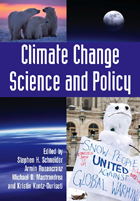
In many ways, this volume supersedes the Fourth Assessment Report of the Intergovernmental Panel on Climate Change (IPCC). Many important developments too recent to be treated by the 2007 IPCC documents are covered here. This book considers not only the IPCC report, but also results of the UN Framework Convention on Climate Change held in Bali in December 2007, as well as even more recent research data. Overall, Climate Change Science and Policy paints a direr picture of the effects of climate change than do the IPCC reports. It reveals that climate change has progressed faster than the IPCC reports anticipated and that the outlook for the future is bleaker than the IPCC reported.
In his prologue, John P. Holdren writes that the widely-used term “ global warming” is a misnomer. He suggests that a more accurate label would be “ global climatic disruption.” This volume, he states, will equip readers with all they need to know to rebut the misrepresentations being propagated by “ climate-change skeptics.” No one, he writes, will be a skeptic after reading this book.


Disputes over hazardous waste sites usually are resolved by giving greater weight to expert opinion over public "not-in-my-back-yard" reactions. Challenging the assumption that policy experts are better able to discern the general welfare, Gregory E. McAvoy here proposes that citizen opinion and democratic dissent occupy a vital, constructive place in environmental policymaking.
McAvoy explores the issues of citizen rationality, the tension between democracy and technocracy, and the link between public opinion and policy in the case of an unsuccessful attempt to site a hazardous waste facility in Minnesota. He shows how the site was defeated by citizens who had reasonable doubts over the need for the facility.
Offering a comprehensive look at the policymaking process, McAvoy examines the motivations of public officials, the resources they have for shaping opinion, the influence of interest groups, and the evolution of waste reduction programs in Minnesota and other states. Integrating archival material, interviews, and quantitative survey data, he argues that NIMBY movements can bring miscalculations to light and provide an essential check on policy experts' often partisan views.
This book will be of value to those who work or study in the fields of hazardous waste policy, facility siting, environmental policy, public policy, public administration, and political science.

Mirowski contends that neoclassical economists have persistently presumed and advanced an “effortless economy of science,” a misleading model of a self-sufficient and conceptually self-referential social structure that transcends market operations in pursuit of absolute truth. In the stunning essays collected here, he presents a radical critique of the ways that neoclassical economics is used to support, explain, and legitimate the current social practices underlying the funding and selection of “successful” science projects. He questions a host of theories, including the portraits of science put forth by Karl Popper, Michael Polanyi, and Thomas Kuhn. Among the many topics he examines are the social stabilization of quantitative measurement, the repressed history of econometrics, and the social construction of the laws of supply and demand and their putative opposite, the gift economy. In The Effortless Economy of Science? Mirowski moves beyond grand abstractions about science, truth, and democracy in order to begin to talk about the way science is lived and practiced today.

How can decisionmakers charged with protecting the environment and the public’s health and safety steer clear of false and misleading scientific research? Is it possible to give scientists a stronger voice in regulatory processes without yielding too much control over policy, and how can this be harmonized with democratic values? These are just some of the many controversial and timely questions that Sheila Jasanoff asks in this study of the way science advisers shape federal policy.
In their expanding role as advisers, scientists have emerged as a formidable fifth branch of government. But even though the growing dependence of regulatory agencies on scientific and technical information has granted scientists a greater influence on public policy, opinions differ as to how those contributions should be balanced against other policy concerns. More important, who should define what counts as good science when all scientific claims incorporate social factors and are subject to negotiation?
Jasanoff begins by describing some significant failures—such as nitrites, Love Canal, and alar—in administrative and judicial decisionmaking that fed the demand for more peer review of regulatory science. In analyzing the nature of scientific claims and methods used in policy decisions, she draws comparisons with the promises and limitations of peer review in scientific organizations operating outside the regulatory context. The discussion of advisory mechanisms draws on the author’s close scrutiny of two highly visible federal agencies—the Environmental Protection Agency and the Food and Drug Administration. Here we see the experts in action as they deliberate on critical issues such as clean air, pesticide regulation, and the safety of pharmaceuticals and food additives.
Jasanoff deftly merges legal and institutional analysis with social studies of science and presents a strong case for procedural reforms. In so doing, she articulates a social-construction model that is intended to buttress the effectiveness of the fifth branch.

Situated along the line that divides the rich ecologies of Asia and Australia, the Indonesian archipelago is a hotbed for scientific exploration, and scientists from around the world have made key discoveries there. But why do the names of Indonesia’s own scientists rarely appear in the annals of scientific history? In The Floracrats Andrew Goss examines the professional lives of Indonesian naturalists and biologists, to show what happens to science when a powerful state becomes its greatest, and indeed only, patron.
With only one purse to pay for research, Indonesia’s scientists followed a state agenda focused mainly on exploiting the country’s most valuable natural resources—above all its major export crops: quinine, sugar, coffee, tea, rubber, and indigo. The result was a class of botanic bureaucrats that Goss dubs the “floracrats.” Drawing on archives and oral histories, he shows how these scientists strove for the Enlightenment ideal of objective, universal, and useful knowledge, even as they betrayed that ideal by failing to share scientific knowledge with the general public. With each chapter, Goss details the phases of power and the personalities in Indonesia that have struggled with this dilemma, from the early colonial era, through independence, to the modern Indonesian state. Goss shows just how limiting dependence on an all-powerful state can be for a scientific community, no matter how idealistic its individual scientists may be.
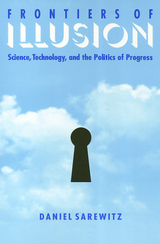
For the past fifty years, science and technology—supported with billions of dollars from the U.S. government—have advanced at a rate that would once have seemed miraculous, while society's problems have grown more intractable, complex, and diverse. Yet scientists and politicians alike continue to prescribe more science and more technology to cure such afflictions as global climate change, natural resource depletion, overpopulation, inadequate health care, weapons proliferation, and economic inequality.
Daniel Sarewitz scrutinizes the fundamental myths that have guided the formulation of science policy for half a century—myths that serve the professional and political interests of the scientific community, but often fail to advance the interests of society as a whole. His analysis ultimately demonstrates that stronger linkages between progress in science and progress in society will require research agendas that emerge not from the intellectual momentum of science, but from the needs and goals of society.

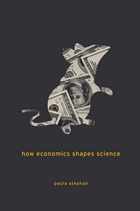
The beauty of science may be pure and eternal, but the practice of science costs money. And scientists, being human, respond to incentives and costs, in money and glory. Choosing a research topic, deciding what papers to write and where to publish them, sticking with a familiar area or going into something new—the payoff may be tenure or a job at a highly ranked university or a prestigious award or a bump in salary. The risk may be not getting any of that.
At a time when science is seen as an engine of economic growth, Paula Stephan brings a keen understanding of the ongoing cost-benefit calculations made by individuals and institutions as they compete for resources and reputation. She shows how universities offload risks by increasing the percentage of non-tenure-track faculty, requiring tenured faculty to pay salaries from outside grants, and staffing labs with foreign workers on temporary visas. With funding tight, investigators pursue safe projects rather than less fundable ones with uncertain but potentially path-breaking outcomes. Career prospects in science are increasingly dismal for the young because of ever-lengthening apprenticeships, scarcity of permanent academic positions, and the difficulty of getting funded.
Vivid, thorough, and bold, How Economics Shapes Science highlights the growing gap between the haves and have-nots—especially the vast imbalance between the biomedical sciences and physics/engineering—and offers a persuasive vision of a more productive, more creative research system that would lead and benefit the world.
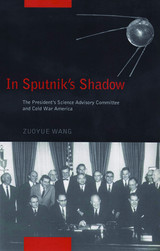
In today’s world of rapid advancements in science and technology, we need to scrutinize more than ever the historical forces that shape our perceptions of what these new possibilities can and cannot do for social progress. In Sputnik’s Shadow provides a lens to do just that, by tracing the rise and fall of the President’s Science Advisory Committee from its ascendance under Eisenhower in the wake of the Soviet launching of Sputnik to its demise during the Nixon years. Members of this committee shared a strong sense of technological skepticism; they were just as inclined to advise the president about what technology couldn’t do—for national security, space exploration, arms control, and environmental protection—as about what it could do.
Zuoyue Wang examines key turning points during the twentieth century, including the beginning of the Cold War, the debates over nuclear weapons, the Sputnik crisis in 1957, the struggle over the Vietnam War, and the eventual end of the Cold War, showing how the involvement of scientists in executive policymaking evolved over time. Bringing new insights to the intellectual, social, and cultural histories of the era, this book not only depicts the drama of Cold War American science, it gives perspective to how we think about technological advancements today.
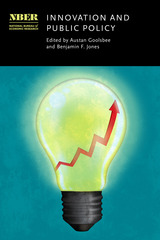
In advanced economies like the United States, innovation has long been recognized as a central force for increasing economic prosperity and human welfare. Today, the US government promotes innovation through various mechanisms, including tax credits for private-sector research, grant support for basic and applied research, and institutions like the Small Business Innovation Research Program of the National Science Foundation. Drawing on the latest empirical and conceptual research, Innovation and Public Policy surveys the key components of innovation policy and the social returns to innovation investment. It examines mechanisms that can advance the pace of invention and innovative activity, including expanding the research workforce through schooling and immigration policy and funding basic research. It also considers scientific grant systems for funding basic research, including those at institutions like the National Institutes of Health and the National Science Foundation, and investigates the role of entrepreneurship policy and of other institutions that promote an environment conducive to scientific breakthroughs.
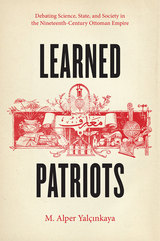
In Learned Patriots, M. Alper Yalçinkaya examines what it meant for nineteenth-century Ottoman elites themselves to have a debate about science. Yalçinkaya finds that for anxious nineteenth-century Ottoman politicians, intellectuals, and litterateurs, the chief question was not about the meaning, merits, or dangers of science. Rather, what mattered were the qualities of the new “men of science.” Would young, ambitious men with scientific education be loyal to the state? Were they “proper” members of the community? Science, Yalçinkaya shows, became a topic that could hardly be discussed without reference to identity and morality.
Approaching science in culture, Learned Patriots contributes to the growing literature on how science travels, representations and public perception of science, science and religion, and science and morality. Additionally, it will appeal to students of the intellectual history of the Middle East and Turkish politics.
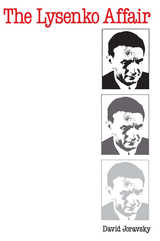
"A standard source both for Soviet specialists and for sociologists of science."—American Journal of Sociology
"Joravsky has produced . . . the most detailed and authoritative treatment of Lysenko and his view on genetics."—New York Times Book Review
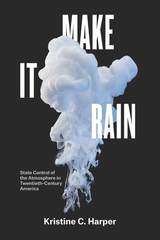
In Make It Rain, Kristine C. Harper tells the long and somewhat ludicrous history of state-funded attempts to manage, manipulate, and deploy the weather in America. Harper shows that governments from the federal to the local became helplessly captivated by the idea that weather control could promote agriculture, health, industrial output, and economic growth at home, or even be used as a military weapon and diplomatic tool abroad. Clear fog for landing aircraft? There’s a project for that. Gentle rain for strawberries? Let’s do it! Enhanced snowpacks for hydroelectric utilities? Check. The heyday of these weather control programs came during the Cold War, as the atmosphere came to be seen as something to be defended, weaponized, and manipulated. Yet Harper demonstrates that today there are clear implications for our attempts to solve the problems of climate change.
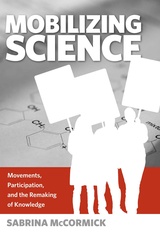
Mobilizing Science theoretically and empirically explores the rise of a new kind of social movement—one that attempts to empower citizens through the use of expert scientific research. Sabrina Mccormick advances theories of social movements, development, and science and technology studies by examining how these fields intersect in cases around the globe.
Mccormick grounds her argument in two very different case studies: the anti-dam movement in Brazil and the environmental breast cancer prevention movement in the U.S. These, and many other cases, show that the scientization of society, where expert knowledge is inculcated in multiple institutions and lay people are marginalized, give rise to these new types of movements. While activists who consequently engage in science often instigate new methods that result in new findings and scientific tools, these movements still often fail due to superficial participatory institutions and tightly knit corporate/government relationships.

The national laboratories--Livermore, Berkeley, Los Alamos, Argonne, Oak Ridge, and Brookhaven--have occupied a central place in the landscape of American science for more than fifty years. Responsible for the development of nuclear weapons, reactors, and other technologies that shaped American policy and culture in the Cold War, scientists from these labs also pursued physical and biomedical research that fundamentally changed our understanding of nature. But all of this has come at great cost, in terms of finance, facilities, and manpower, and has forced major adjustments in the framework of American science.
Deeply researched and lucidly written, The National Labs is the first book to trace the confluence of diverse interests that created and sustained this extensive enterprise. Peter J. Westwick takes us from the origins of the labs in the Manhattan Project to their role in building the hydrogen bomb, nuclear power reactors, and high-energy accelerators, to their subsequent entry into such fields as computers, meteorology, space science, molecular biology, environmental science, and alternative energy sources. By showing us that the national laboratory system developed as a reflection of American ideals of competition and decentralization in the Cold War, Westwick also demonstrates how scientific institutions reflect the values of their surrounding political system and culture.

Initially conceived to exploit nature for the benefit of empire, the Gardens were part of a symbolic struggle by administrators, scientists, and gardeners to assert dominance within Southeast Asia’s tropical landscape, reflecting shifting understandings of power, science, and nature among local administrators and distant mentors in Britain. Consequently, as an outpost of imperial science, the Gardens were instrumental in the development of plantation crops, such as rubber and oil palm, which went on to shape landscapes across the globe. Since the independence of Singapore, the Gardens have played a role in the “greening” of the country and have been named as Singapore’s first World Heritage Site. Setting the Gardens alongside the Royal Botanic Gardens, Kew, and botanic gardens in India, Ceylon, Mauritius, and the West Indies, Nature’s Colony provide the first in-depth look at the history of this influential institution.
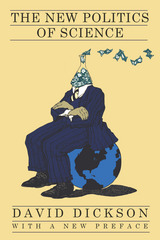
In The New Politics of Science, David Dickson points out that "the scientific community has its own internal power structures, its elites, its hierarchies, its ideologies, its sanctioned norms of social behavior, and its dissenting groups. And the more that science, as a social practice, forms an integral part of the economic structures of the society in which it is imbedded, the more the boundaries and differences between the two dissolve. Groups inside the scientific community, for example, will use groups outside the community—and vice versa—to achieve their own political ends." In this edition, Dickson has included a new preface commenting on the continuing and increasing influence of industrial and defense interests on American scientific research in the 1980s.
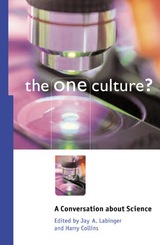
The One Culture? is organized into three parts. The first consists of position papers written by scientists and sociologists of science, which were distributed to all the participants. The second presents commentaries on these papers, drawing out and discussing their central themes and arguments. In the third section, participants respond to these critiques, offering defenses, clarifications, and modifications of their positions.
Who can legitimately speak about science? What is the proper role of scientific knowledge? How should scientists interact with the rest of society in decision making? Because science occupies such a central position in the world today, such questions are vitally important. Although there are no simple solutions, The One Culture? does show the reader exactly what is at stake in the Science Wars, and provides a valuable framework for how to go about seeking the answers we so urgently need.
Contributors include:
Constance K. Barsky, Jean Bricmont, Harry Collins, Peter Dear, Jane
Gregory, Jay A. Labinger, Michael Lynch, N. David Mermin, Steve
Miller, Trevor Pinch, Peter R. Saulson, Steven Shapin, Alan Sokal,
Steven Weinberg, Kenneth G. Wilson
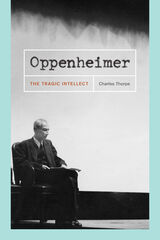

The rapid growth of Taiwan’s postwar “miracle” economy is most frequently credited to the leading role of the state in promoting economic development. Megan Greene challenges this standard interpretation in the first in-depth examination of the origins of Taiwan’s developmental state.
Greene examines the ways in which the Guomindang state planned and promoted scientific and technical development both in mainland China between 1927 and 1949 and on Taiwan after 1949. Using industrial science policy as a lens, she shows that the state, even during its most authoritarian periods, did not function as a monolithic entity. State planners were concerned with maximizing the use of Taiwan’s limited resources for industrial development. Political leaders, on the other hand, were most concerned with the state’s political survival. The developmental state emerged gradually as a result of the combined efforts of technocrats and outsiders, including academicians and foreign advisors. Only when the political leadership put its authority and weight behind the vision of these early planners did Taiwan’s developmental state fully come into being.
In Taiwan’s combination of technocratic expertise and political authoritarianism lie implications for our understanding of changes taking place in mainland China today.
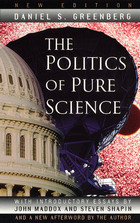
While the book's hard-hitting approach earned praise from a broad audience, it drew harsh fire from many scientists, who did not relish their turn under the microscope. The fact that this dispute is so reminiscent of today's acrimonious "Science Wars" demonstrates that although science has changed a great deal since The Politics of Pure Science first appeared, the politics of science has not—which is why this book retains its importance.
For this new edition, John Maddox (Nature editor emeritus) and Steven Shapin have provided introductory essays that situate the book in broad social and historical context, and Greenberg has written a new afterword taking account of recent developments in the politics of science.
"[A] book of consequence about science as one of the more consequential social institutions in the modern world. It is one that could be understood and should be read by the President, legislators, scientists and the rest of us ordinary folk. . . . Informative and perceptive."—Robert K. Merton, New York Times Book Review

Although it ended up as only one among a host of federal research policymaking agencies, the National Science Foundation was originally conceived as central to the federal research policymaking system. Kleinman’s historical examination of the National Science Foundation exposes the sociological and political workings of the system, particularly the way in which a small group of elite scientists shaped the policymaking process and defined the foundation’s structure and future. Beginning with Vannevar Bush’s 1945 manifesto The Endless Frontier, Kleinman explores elite and populist visions for a postwar research policy agency and shows how the structure of the American state led to the establishment of a fragmented and uncoordinated system for federal research policymaking. His book concludes with an analysis of recent efforts to reorient research policy and to remake federal policymaking institutions in light of the current "crisis" of economic competitiveness.
A particularly timely study, Politics on the Endless Frontier will be of interest to historians and sociologists of science and technology and to science policy analysts.

The idea that predictive science can simplify the decision-making process by creating a clearer picture of the future is deeply appealing in principle, but deeply problematic in practice.
Prediction offers a fascinating and wide-ranging look at the interdependent scientific, political, and social factors involved in using science-based predictions to guide policy making. Through ten detailed case studies, it explores society's efforts to generate reliable scientific information about complex natural systems and to use that information in making sound policy decisions. The book:
- provides an overview of predictive science from historical, scientific, political, and behavioral perspectives offers case studies of the use and misuse of scientific predictions on subjects ranging from asteroids to nuclear waste disposal
- proposes a practical analytical framework for the use of predictive science in setting policy
- recommends actions and policies that can increase the likelihood of effective decisions
Prediction is the first book to look at the numerous and varied scientific, social, and political factors involved in making and using predictions relevant to a wide range of current environmental controversies and challenges. It provides much-needed context for understanding predictions and scientific pronouncements, and is an important work for anyone concerned with interactions between science and policy making.
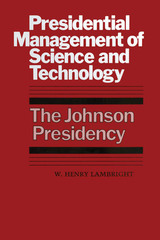
How do science and technology issues become important to a particular presidency? Which issues gain priority? How? Why? What is the role of the presidency in the adoption of national policies affecting science and technology? In their implementation? How does the presidency try to curtail certain programs? Eliminate others? Or rescue programs Congress might seek to terminate? How does implementation vary between a president's own program and one that is inherited?
Such are the questions raised in this book, one of the first to address the relationship between scientists, few of whom have political backgrounds, and presidents, few of whom are knowledgeable in matters of science and technology. Drawing on extensive research performed at the Lyndon B. Johnson Library in Austin, Texas, and the National Archives in Washington, as well as on secondary sources and interviews, W. Henry Lambright describes, discusses, and analyzes this relationship and shows how one presidency set its agenda, adopted, implemented, and curtailed or eliminated science and technology programs.
Twenty-four case studies of specific decision processes occurring in the era of Lyndon Johnson anchor the book in the world of real events. Some programs adopted under Johnson are now all but forgotten, such as the Manned Orbiting Laboratory, nuclear desalting, and electronic barrier. The effects of many more, initiated, maintained, or enlarged under LBJ, lasted far beyond his administration. These include environmental pollution control, Project Apollo, and the application of Agent Orange in Vietnam. Finally, there are those that were redirected, placed on hold, or terminated under Johnson, such as the supersonic transport, antiballistic missile, and Project Mohole.
In this important book, Lambright has provided a framework for analyzing how the presidency as an institution deals with such issues, and he has established a strong foundation on which all future students of presidential policy management can build.
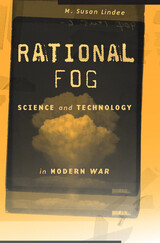
A thought-provoking examination of the intersections of knowledge and violence, and the quandaries and costs of modern, technoscientific warfare.
Science and violence converge in modern warfare. While the finest minds of the twentieth century have improved human life, they have also produced human injury. They engineered radar, developed electronic computers, and helped mass produce penicillin all in the context of military mobilization. Scientists also developed chemical weapons, atomic bombs, and psychological warfare strategies.
Rational Fog explores the quandary of scientific and technological productivity in an era of perpetual war. Science is, at its foundation, an international endeavor oriented toward advancing human welfare. At the same time, it has been nationalistic and militaristic in times of crisis and conflict. As our weapons have become more powerful, scientists have struggled to reconcile these tensions, engaging in heated debates over the problems inherent in exploiting science for military purposes. M. Susan Lindee examines this interplay between science and state violence and takes stock of researchers’ efforts to respond. Many scientists who wanted to distance their work from killing have found it difficult and have succumbed to the exigencies of war. Indeed, Lindee notes that scientists who otherwise oppose violence have sometimes been swept up in the spirit of militarism when war breaks out.
From the first uses of the gun to the mass production of DDT and the twenty-first-century battlefield of the mind, the science of war has achieved remarkable things at great human cost. Rational Fog reminds us that, for scientists and for us all, moral costs sometimes mount alongside technological and scientific advances.
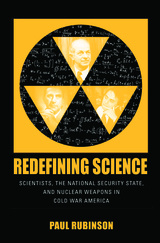
The Cold War forced scientists to reconcile their values of internationalism and objectivity with the increasingly militaristic uses of scientific knowledge. For decades, antinuclear scientists pursued nuclear disarmament in a variety of ways, from grassroots activism to transnational diplomacy and government science advising. The U.S. government ultimately withstood these efforts, redefining science as a strictly technical endeavor that enhanced national security and deeming science that challenged nuclear weapons on moral grounds “emotional” and patently unscientific. In response, many activist scientists restricted themselves to purely technical arguments for arms control. When antinuclear protest erupted in the 1980s, grassroots activists had moved beyond scientific and technical arguments for disarmament. Grounding their stance in the idea that nuclear weapons were immoral, they used the “emotional” arguments that most scientists had abandoned.
Redefining Science shows that the government achieved its Cold War “consensus” only by active opposition to powerful dissenters and helps explain the current and uneasy relationship between scientists, the public, and government in debates over issues such as security, energy, and climate change.

Democratic or authoritarian, every society needs clean air and water; every state must manage its wildlife and natural resources. In this provocative, comparative study, Paul R. Josephson asks to what extent the form of a government and its economy--centrally planned or market, colonial or post-colonial--determines how politicians, bureaucrats, scientists, engineers, and industrialists address environmental and social problems presented by the transformation of nature into a humanized landscape.
Looking at the experiences of the industrialized and industrializing world, Resources under Regimes explores the relationship between science, technology, and the environment. Josephson considers global responses to deforestation, water pollution, and global warming, showing how different societies bring different values and assumptions to bear on the same problem, and arrive at different conclusions about the ideal outcome and the best way of achieving it. He reveals the important ways in which modern governments facilitate power generation, transportation, water production, and other technologies that improve the quality of life; and the equally critical ways in which they respond to the resulting depredations--the pollution, waste, and depletion that constitute the global environmental crisis at the beginning of the twenty-first century.
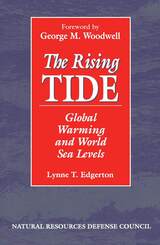
The Rising Tide is the first analysis of global warming and world sea level rise. It outlines state, national, and international actions to respond to the effects of global warming on coastal communities and ecosystems.
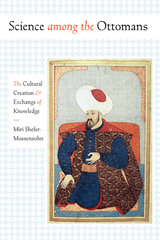
Scholars have long thought that, following the Muslim Golden Age of the medieval era, the Ottoman Empire grew culturally and technologically isolated, losing interest in innovation and placing the empire on a path toward stagnation and decline. Science among the Ottomans challenges this widely accepted Western image of the nineteenth- and early twentieth-century Ottomans as backward and impoverished.
In the first book on this topic in English in over sixty years, Miri Shefer-Mossensohn contends that Ottoman society and culture created a fertile environment that fostered diverse scientific activity. She demonstrates that the Ottomans excelled in adapting the inventions of others to their own needs and improving them. For example, in 1877, the Ottoman Empire boasted the seventh-longest electric telegraph system in the world; indeed, the Ottomans were among the era’s most advanced nations with regard to modern communication infrastructure. To substantiate her claims about science in the empire, Shefer-Mossensohn studies patterns of learning; state involvement in technological activities; and Turkish- and Arabic-speaking Ottomans who produced, consumed, and altered scientific practices. The results reveal Ottoman participation in science to have been a dynamic force that helped sustain the six-hundred-year empire.

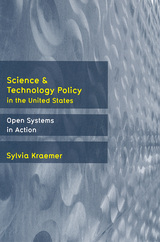
During the latter half of the twentieth century, federal funding in the United States for scientific research and development increased dramatically. Yet despite the infusion of public funds into research centers, the relationship between public policy and research and development remains poorly understood.
How does the federal government attempt to harness scientific knowledge and resources for the nation's economic welfare and competitiveness in the global marketplace? Who makes decisions about controversial scientific experiments, such as genetic engineering and space exploration? Who is held accountable when things go wrong?
In this lucidly-written introduction to the topic, Sylvia Kraemer draws upon her extensive experience in government to develop a useful and powerful framework for thinking about the American approach to shaping and managing scientific innovation. Kraemer suggests that the history of science, technology, and politics is best understood as a negotiation of ongoing tensions between open and closed systems. Open systems depend on universal access to information that is complete, verifiable, and appropriately used. Closed systems, in contrast, are composed of unique and often proprietary features, which are designed to control usage.
From the Constitution's patent clause to current debates over intellectual property, stem cells, and internet regulation, Kraemer shows the promise-as well as the limits-of open systems in advancing scientific progress as well as the nation's economic vitality.
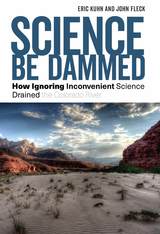
Arguing that the science of the early twentieth century can shed new light on the mistakes at the heart of the over-allocation of the Colorado River, authors Eric Kuhn and John Fleck delve into rarely reported early studies, showing that scientists warned as early as the 1920s that there was not enough water for the farms and cities boosters wanted to build. Contrary to a common myth that the authors of the Colorado River Compact did the best they could with limited information, Kuhn and Fleck show that development boosters selectively chose the information needed to support their dreams, ignoring inconvenient science that suggested a more cautious approach.
Today water managers are struggling to come to terms with the mistakes of the past. Focused on both science and policy, Kuhn and Fleck unravel the tangled web that has constructed the current crisis. With key decisions being made now, including negotiations for rules governing how the Colorado River water will be used after 2026, Science Be Dammed offers a clear-eyed path forward by looking back.
Understanding how mistakes were made is crucial to understanding our contemporary problems. Science Be Dammed offers important lessons in the age of climate change about the necessity of seeking out the best science to support the decisions we make.
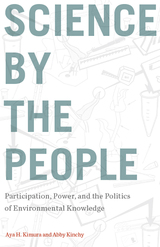
Citizen science—research involving nonprofessionals in the research process—has attracted both strong enthusiasts and detractors. Many environmental professionals, activists, and scholars consider citizen science part of their toolkit for addressing environmental challenges. Critics, however, contend that it represents a corporate takeover of scientific priorities. In this timely book, two sociologists move beyond this binary debate by analyzing the tensions and dilemmas that citizen science projects commonly face. Key lessons are drawn from case studies where citizen scientists have investigated the impact of shale oil and gas, nuclear power, and genetically engineered crops. These studies show that diverse citizen science projects face shared dilemmas relating to austerity pressures, presumed boundaries between science and activism, and difficulties moving between scales of environmental problems. By unpacking the politics of citizen science, this book aims to help people negotiate a complex political landscape and choose paths moving toward social change and environmental sustainability.
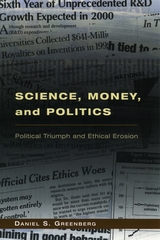
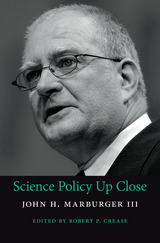
In a career that included tenures as president of Stony Brook University, director of Brookhaven National Laboratory, and science advisor to President George W. Bush, John Marburger (1941–2011) found himself on the front line of battles that pulled science ever deeper into the political arena. From nuclear power to global warming and stem cell research, science controversies, he discovered, are never just about science. Science Policy Up Close presents Marburger’s reflections on the challenges science administrators face in the twenty-first century.
In each phase of public service Marburger came into contact with a new dimension of science policy. The Shoreham Commission exposed him to the problem of handling a volatile public controversy over nuclear power. The Superconducting Super Collider episode gave him insights into the collision between government requirements and scientists’ expectations and feelings of entitlement. The Directorship of Brookhaven taught him how to talk to the public about the risks of conducting high-energy physics and about large government research facilities. As Presidential Science Advisor he had to represent both the scientific community to the administration and the administration to the scientific community at a time when each side was highly suspicious of the other.
What Marburger understood before most others was this: until the final quarter of the twentieth century, science had been largely protected from public scrutiny and government supervision. Today that is no longer true. Scientists and science policy makers can learn from Marburger what they must do now to improve their grip on their own work..

At a time when scientific knowledge is systematically whisked out of the domain of education and converted into private capital, the essays in this volume are sharply critical of the conservative defense of a value-free science. They suggest that in a world steeped in nuclear, biogenic, and chemical overdevelopment, those who are skeptical of technology are more than entitled to ask for evidence of rationality in those versions of scientific progress that respond only to the managerial needs of state, corporate, and military elites. Whether uncovering the gender-laden assumptions built into the Western scientific method, redefining the scientific claim to objectivity, showing the relationship between science’s empirical worldview and that of mercantile capitalism, or showing how the powerful language of science exercises its daily cultural authority in our society, the essays in Science Wars announce their own powerful message. Analyzing the antidemocratic tendencies within science and its institutions, they insist on a more accountable relationship between scientists and the communities and environments affected by their research.
Revised and expanded from a recent issue of Social Text, Science Wars will provoke thought and controversy among scholars and general readers interested in science studies and current cultural politics.
Contributors. Stanley Aronowitz, Sarah Franklin, Steve Fuller, Sandra Harding, Roger Hart, N. Katherine Hayles, Ruth Hubbard, Joel Kovel, Les Levidow, George Levine, Richard Levins, Richard C. Lewontin, Michael Lynch, Emily Martin, Dorothy Nelkin, Hilary Rose, Andrew Ross, Sharon Traweek, Langdon Winner
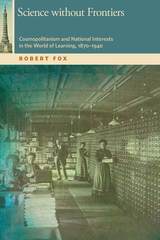
Fostered by international congresses and societies, scientific collaboration flourished across linguistic and national borders from the mid-nineteenth century up until, and even after, the First World War. Projects such as the universal language Esperanto and the Dewey decimal system relied on optimistic visions of the future and were fueled by dramatic improvements in communications and transportation. The Institut international de bibliographie, founded in Brussels in 1895, emerged as a center for this collaborative endeavor.
After the First World War, scientific internationalism met with new challenges as governments increasingly sought to control the uses of science and technology. Fox details the fate of cooperative scientific internationalism in Europe and the challenges posed to it by the rise of totalitarianism and the increasingly conflicting force of nationalism. He explores public expressions of scientific nationalism in museum exhibits and, most tellingly, in rival national pavilions at the Paris International Exposition of 1937.
World War II might have shattered internationalist ideals for good, but grounds for optimism remain in the successes of international organizations like UNESCO and in the potential of electronic media as a way to achieve a vision of universal access to knowledge. Science without Frontiers offers a new way to think about science and culture and its relationship to politics amid the crises of the twentieth century.

The days of intricate test-ban negotiations, Khrushchev's visit to Camp David, the cranberry controversy, the impending rupture with Cuba, the downed U-2, and the failed Summit in Paris come to life again in this highly personal diary kept by the Ukrainian-born chemist who was President Eisenhower's science advisor. Richly detailed, candid, and very human, the memoir offers an inside view of White House infighting, policy disputes, and bureaucratic conflict, and of the role an eminent scientist came to play in shaping presidential decisions. It records the interaction between the scientific community and the defense establishment during a critical period in the making of United States foreign policy. Throughout, Kistiakowsky's growing admiration for the President becomes clear.
George Kistiakowsky became President Eisenhower's special assistant for science and technology in July 1959, and he served until John F. Kennedy's inauguration. He was the second person to hold this office, which was created by Eisenhower and would be abolished under Nixon. After considerable pressure from the scientific community, President Ford reinstated the position on the White House staff in August 1976.
From the day he took office, Kistiakowsky kept a private journal of his activities and conversations. This diary, edited and annotated, is a readable and informative chronicle; it adds substantially to our knowledge of day-to-day operations in the office of the President. It records the progress of a citizen-expert who struggled to serve the President and the country with objective information and dispassionate analysis--but who also had his own strong ideas and passionate beliefs.
With an introduction by Charles S. Maier and supplemented by Kistiakowsky's own reminiscences and commentary, this book can be read either as a primary document or as entertaining background; it is a unique contribution to contemporary history.
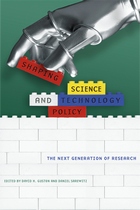
With scientific progress occurring at a breathtaking pace, science and technology policy has never been more important than it is today. Yet there is a very real lack of public discourse about policy-making, and government involvement in science remains shrouded in both mystery and misunderstanding. Who is making choices about technology policy, and who stands to win or lose from these choices? What criteria are being used to make decisions and why? Does government involvement help or hinder scientific research?
Shaping Science and Technology Policy brings together an exciting and diverse group of emerging scholars, both practitioners and academic experts, to investigate current issues in science and technology policy. Essays explore such topics as globalization, the shifting boundary between public and private, informed consent in human participation in scientific research, intellectual property and university science, and the distribution of the costs and benefits of research.
Contributors: Charlotte Augst, Grant Black, Mark Brown, Kevin Elliott, Patrick Feng, Pamela M. Franklin, Carolyn Gideon, Tené N. Hamilton, Brian A. Jackson, Shobita Parthasarathy, Jason W. Patton, A. Abigail Payne, Bhaven Sampat, Christian Sandvig, Sheryl Winston Smith, Michael Whong-Barr
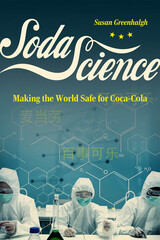
The 1990s were tough times for the soda industry. In the United States, obesity rates were exploding. Public health critics pointed to sugary soda as a main culprit and advocated for soda taxes that might decrease the consumption of sweetened beverages—and threaten the revenues of the giant soda companies.
Soda Science tells the story of how industry leader Coca-Cola mobilized allies in academia to create a soda-defense science that would protect profits by advocating exercise, not dietary restraint, as the priority solution to obesity, a view few experts accept. Anthropologist and science studies specialist Susan Greenhalgh discovers a hidden world of science-making—with distinctive organizations, social networks, knowledge-making practices, and ethical claims—dedicated to creating industry-friendly science and keeping it under wraps. By tracing the birth, maturation, death, and afterlife of the science they made, Greenhalgh shows how corporate science has managed to gain such a hold over our lives.
Spanning twenty years, her investigation takes her from the US, where the science was made, to China, a key market for sugary soda. In the US, soda science was a critical force in the making of today’s society of step-counting, fitness-tracking, weight-obsessed citizens. In China, this distorted science has left its mark not just on national obesity policies but on the apparatus for managing chronic disease generally. By following the scientists and their ambitious schemes to make the world safe for Coke, Greenhalgh offers an account that is more global—and yet more human—than the story that dominates public understanding today.
Coke’s research isn’t fake science, Greenhalgh argues; it was real science, conducted by real and eminent scientists, but distorted by its aim. Her gripping book raises crucial questions about conflicts of interest in scientific research, the funding behind familiar messages about health, and the cunning ways giant corporations come to shape our diets, lifestyles, and health to their own needs.
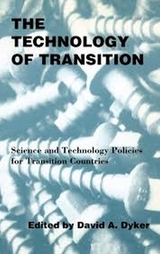

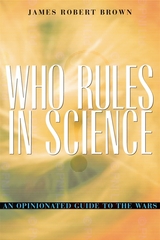
What if something as seemingly academic as the so-called science wars were to determine how we live?
This eye-opening book reveals how little we've understood about the ongoing pitched battles between the sciences and the humanities--and how much may be at stake. James Brown's starting point is C. P. Snow's famous book, Two Cultures and the Scientific Revolution, which set the terms for the current debates. But that little book did much more than identify two new, opposing cultures, Brown contends: It also claimed that scientists are better qualified than nonscientists to solve political and social problems. In short, the true significance of Snow's treatise was its focus on the question of who should rule--a question that remains vexing, pressing, and politically explosive today.
In Who Rules in Science? Brown takes us through the various engagements in the science wars--from the infamous "Sokal affair" to angry confrontations over the nature of evidence, the possibility of objectivity, and the methods of science--to show how the contested terrain may be science, but the prize is political: Whoever wins the science wars will have an unprecedented influence on how we are governed.
Brown provides the most comprehensive and balanced assessment yet of the science wars. He separates the good arguments from the bad, and exposes the underlying message: Science and social justice are inextricably linked. His book is essential reading if we are to understand the forces making and remaking our world.
READERS
Browse our collection.
PUBLISHERS
See BiblioVault's publisher services.
STUDENT SERVICES
Files for college accessibility offices.
UChicago Accessibility Resources
home | accessibility | search | about | contact us
BiblioVault ® 2001 - 2025
The University of Chicago Press



